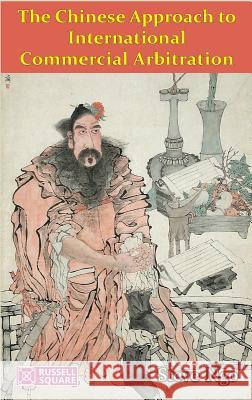The Chinese Approach to International Commercial Arbitration » książka
The Chinese Approach to International Commercial Arbitration
ISBN-13: 9781912142071 / Angielski / Twarda / 2017 / 570 str.
Foreign companies doing business with Chinese companies have been reluctant to submit to Chinese courts. That means it has become crucial to understand the way Chinese companies react to and conduct international commercial arbitration. The Chinese approach to international commercial arbitration described in this book will help readers understand the characteristics of China in handling foreign-related arbitration.
Professor Ngo guides the reader through the particular complexities of the integration of arbitration with the Chinese legal system. This book is a must-read guide for CEOs, lawyers, scholars, practitioners and business people who are dealing with Chinese parties in international business with regard to the preparation for and management of cross border dispute resolutions.
As a reputable scholar, an experienced arbitrator, as well as an ethnic Chinese person brought up in ASEAN culture, the author possesses a uniquely good mix to write on this subject. Steve Ngo’s book, with a full and deep understanding of modern Chinese culture and society, systematically introduces the current status of international commercial arbitration in China, and discusses its possible development in the future.
This comprehensive study reveals many insights just from the author’s choice of subject-matter, own approach and own rich experience. He stresses the Chinese openness to adopt, adapt and exploit ideas from abroad, particularly new technology. Ngo’s explanation of guanxi and mianzi is down-to-earth and essential preparation for the beginner. Just the explanation of why a lawyer’s office may be dingy and approached through a passage festooned with washing is worth the price of this book. Ngo’s clear exposition of the policies of the present Government and of future prospects has all the clarity to be expected from a Singaporean disciple of Lee Kuan Yew. All of this book is illuminated with insights from personal experience, of which Ngo provides many examples.
This book is most appropriate and timely with the emergence of China as a major economic power and the gravitation of trade and commercial activities into the ASEAN region. In Asia, it is inseparable that the approach to business practices and dispute resolution be influenced by Confucian, and thereby Chinese, ethics and beliefs. This book will serve as an important tool for the reader to understand how dispute resolution is practised in this region.
Professor Ngo’s book is not only constantly revealing and challenging, sensible and up to the minute. It is genuinely fun to read. Here is a first-hand account, rich with anecdote and insight.











